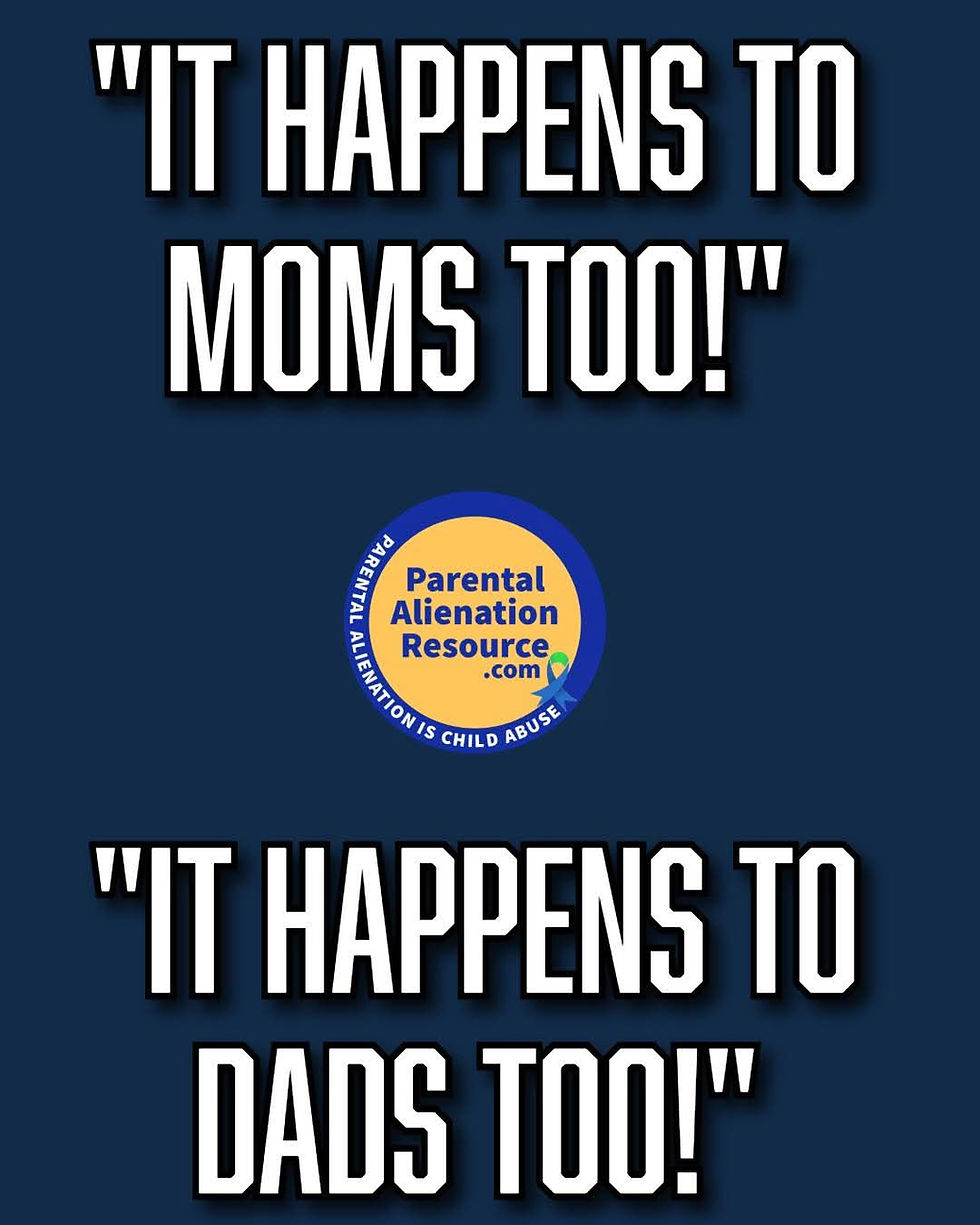Unveiling the Heartbreak of Parental Alienation: Restoring Bonds Between Children and Grandparents
- Parental Alienation Resource

- Mar 4, 2024
- 2 min read

Parental alienation is a troubling phenomenon that often goes unnoticed, yet its impact on the relationships between children and grandparents can be profoundly devastating. As families navigate through divorce or separation, the emotional toll of parental alienation can result in severed connections and lost opportunities for love and support. In this article, we shed light on the rising epidemic of parental alienation and its repercussions on the cherished relationships between children and grandparents.
The Impact of Parental Alienation on Children and Grandparents:
Parental alienation occurs when one parent intentionally undermines the relationship between the child and the other parent or extended family members, including grandparents. This manipulation and coercion can lead to a sense of loss, confusion, and emotional distress for the child, as well as for grandparents who find themselves estranged from their beloved grandchildren.
Children caught in the midst of parental alienation often experience feelings of guilt, loyalty conflicts, and a distorted perception of reality, as they are torn between the conflicting narratives presented by the alienating parent. This toxic environment not only damages the child's emotional well-being but also deprives them of the invaluable love, guidance, and wisdom that grandparents have to offer.
For grandparents, witnessing their grandchild being manipulated or used as a pawn in the parents' disputes can be heart-wrenching. The loss of the grandparent-grandchild bond, which is characterized by unconditional love, joy, and intergenerational connection, leaves a void that cannot be easily filled.
Restoring Relationships and Promoting Healing:
It is crucial for society to recognize the detrimental effects of parental alienation on the familial fabric and take proactive steps to address this issue. By raising awareness, providing support services, and advocating for legal reforms that prioritize the best interests of the child, we can work towards restoring and preserving the relationships between children and grandparents.
Therapeutic interventions, such as family counseling and mediation, can play a vital role in facilitating communication, rebuilding trust, and fostering reconciliation among family members affected by parental alienation. Creating a safe space for open dialogue and healing can help repair the fractured bonds and pave the way for a brighter future.
Conclusion:
Parental alienation poses a significant threat to the well-being of children and grandparents, robbing them of the loving relationships that enrich their lives. By addressing this epidemic with empathy, awareness, and action, we can strive to protect and nurture the precious bonds between children and grandparents, ensuring that they continue to thrive and grow amidst adversity. Let us stand together in solidarity to combat parental alienation and uphold the sanctity of family relationships for generations to come.









Comments